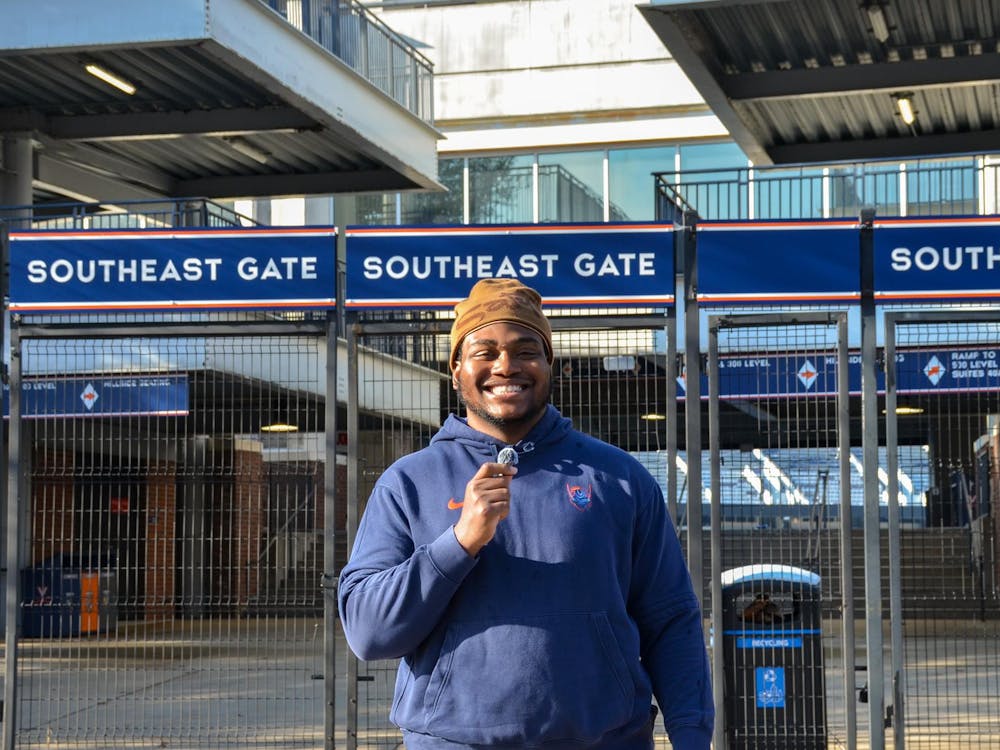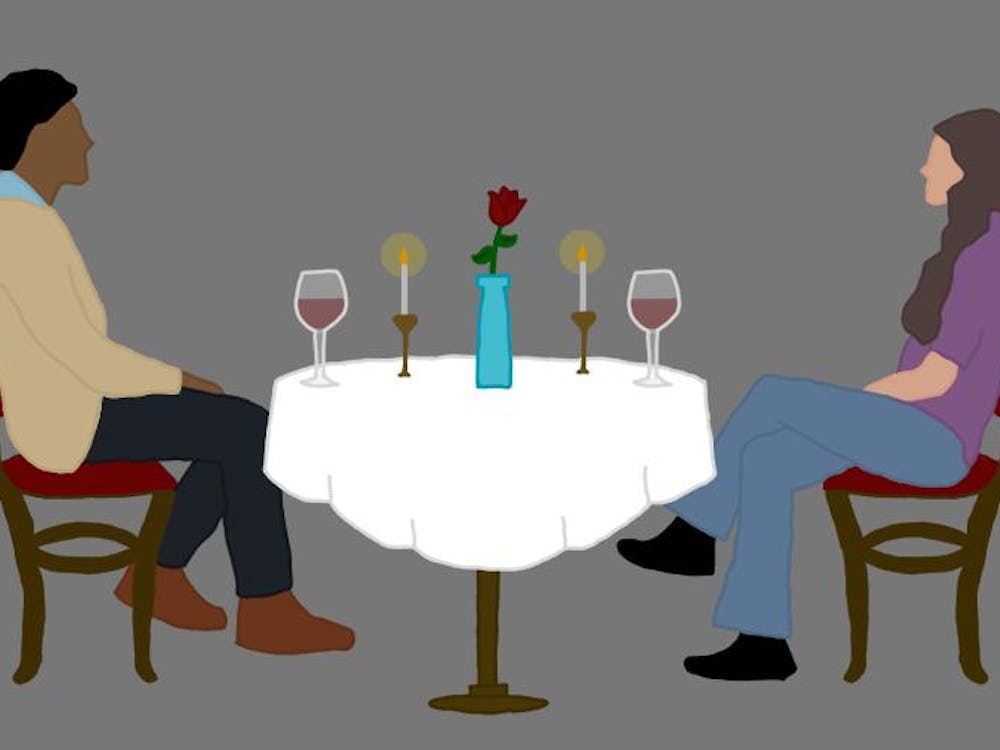What defines a true American? The United States is often described as a country of immigrants, and in every naturalization ceremony, new citizens are told by the president they “are just as American today as the descendants of the Founding Fathers.”
To reach that naturalization ceremony, applicants need to meet a number of requirements set by US Citizens and Immigration Services, such as being at least 18 years old and having lived at the same address in the United States for a minimum of five years.
Some University students entered the United States on a G4 visa — a non-immigrant visa that allows members of international organizations to participate in business activities in the United States — before obtaining their status as legal permanent residents because their parents worked in US offices of these international organizations, Fourth-year College student Christopher Kyle, for example, has been naturalized but is still a New Zealand national. While he “had an easy trek,” he said he has heard plenty of horror stories of “bureaucratic nitpicking.”
“The hardest part was the waiting,” said fourth-year College student Carolina Ferrerosa, a Colombian national, of her experience becoming a U.S. citizen in September. “It’s tough not to become a conspiracy theorist, to start thinking, ‘They’re working against me. They don’t want me to vote.’”
Most applicants apply for a green card while they are still overseas, although it is possible to do in the United States if one has a short-term visa or diplomatic passport, Law Prof. David Martin said.
Many immigrants who apply for a green card do so because they have close family members living in the United States who are American citizens, they have employment opportunities or on a variety of humanitarian grounds, but they often prefer to remain in the United States as legal permanent residents, never applying for citizenship. Kyle said many of his international friends who live in the United States have chosen not to naturalize, as they want to keep their national identity.
So long as all conditions for naturalization have been met, an application should be processed within 120 days, Martin said. After this time an applicant can take his case to court to have the matter settled. Ferrerosa said that during summer 2007 there was a significant increase in the number of applications for naturalization, which resulted in delays in application processing times, from six or seven months to upwards of 14.
Martin said processing delays first began in the mid-1990s when the Immigration and Naturalization Service experienced a large backlog of applications and a rise in litigation ensued. As a result, authorities sought to develop a more efficient system.
Closer scrutiny of the naturalization process, though, exposed vulnerabilities with fingerprint and other security checks, prompting an effort to improve the security of the system as well, Martin said. Now a full FBI background check is required before a person can be naturalized, he said, something that was further intensified after the Sept. 11, 2001 attacks.
Fourth-year College student Teemar Fisseha, who will be applying for citizenship in March 2009, said he felt the INS “give[s] preference to some countries over others ... My Muslim friends from Ethiopia have names that are clearly Islamic and their [applications take longer to] process; there is definitely an element of discrimination.”
Martin said in the last decade there has been more emphasis on complete background checks and noted that the INS would be more likely to conduct a more rigorous inquiry of an applicant of Middle Eastern decent. Martin noted name and birthdate matches with potential security threats are more common within certain ethnicities and need to be more thoroughly investigated. This has caused some problems within the INS because of insufficient staffing and resources, he added.
Once the initial background checks and fingerprinting have been completed, the final step in the naturalization process is an interview. In the interview, applicants must prove basic speaking and writing competency in English and verbally answer five or six questions pertaining to American government and history, Kyle said.
A list of a possible 96 questions is given to applicants as a study aid before the interview.
“It is designed to be accessible to someone with a limited education,” Martin said. “It is very easy for university students.”
Those applying for naturalization have a variety of reasons for doing so, but the right to vote was an important issue for some students at the University, especially because of the upcoming presidential election. Ferrerosa said she found it was hard to be politically active around Grounds when she was personally unable to vote. Kyle, meanwhile, said he feels more secure as a voting citizen. Green card holders can serve in the military and even be drafted, but they cannot vote for the government that is going to draft them. He said that element in particular disturbed him.
There are also many University programs and scholarships that are only offered to American citizens, as well as a number of internships and public service programs across the nation.
“You don’t notice how many things require American citizenship,” Ferrerosa said. “It’s tough — it feels like doors keep closing on you.”
While Ferrerosa was applying to the University, for example, she encountered problems with her status as an in-state student. Although she had lived in Virginia for 17 years, her father was an employee of the International Monetary Fund and therefore did not pay commonwealth taxes. Though she was able to prove she was an in-state student because of her personal employment record and taxes she had paid, she was not able to qualify for several scholarships because she was not a citizen.
Fisseha had similar issues when applying to the University; she said it took a long time for her financial aid to be processed because the University had to contact the USCIS directly to ensure she was a legal resident. Now that she is looking to apply to graduate schools, she said she is still unable to apply for many scholarships because of her status as a non-citizen.
While citizenship can help to resolve these issues, students also cited the value of U.S. citizenship for travel abroad, as the U.S. government has a well-established overseas support network for its citizens. Ferrerosa said during an Alternative Spring Break program in which she participated, the students had a day stop-over in Spain. All the other students were able to explore the country, but because of her citizenship, she was prevented from joining them and had to remain in customs.
“Americans can travel wherever they want,” Fisseha said. “An American passport is like a license to navigate.”
Kyle noted, though, that he fears distaste abroad for Americans at times, “but the United States has a much more developed safety net for travelers around the world.”
While newly naturalized students can begin to take advantage of various benefits of being American, they must also grapple with the question of how to identify themselves.
Ferrerosa said she feels she is “between two worlds,” and when she is asked her nationality, she cannot answer Colombian or American. Kyle describes himself as an American born in New Zealand. He said although he is patriotic to the United States, “there will always be something in where I was born ... when I see residential New Zealand areas something in me says ‘That’s what houses and streets are supposed to look like.’”






